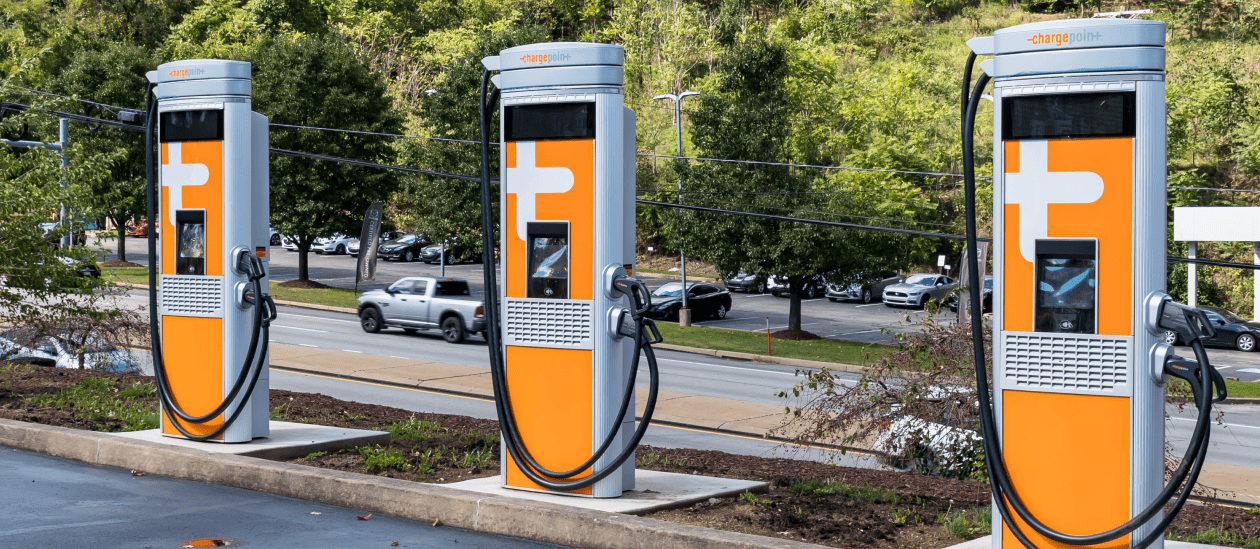
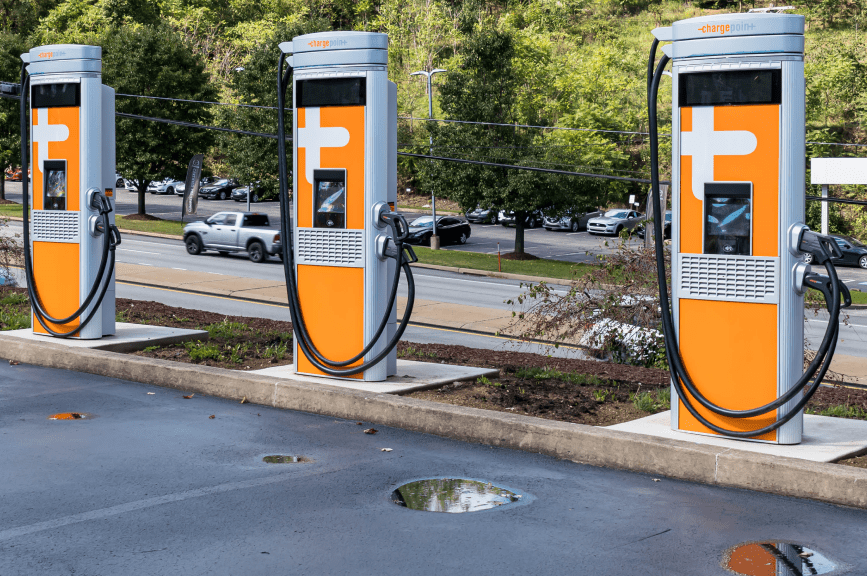
The typical EV owner is changing. Once an affluent, middle-aged consumer, unfazed by dropping $80,000 on a Tesla Model X, the average shopper now skews younger. They might be entry-level professionals or working blue-collar jobs and buying used electric vehicles in the $20k range.
Increased competition, federal tax credits and efficiency enhancements on the manufacturing side are driving down costs and making EVs more attainable. Technology improvements are extending ranges and shortening charge times, yet the number of public charging stations remains a barrier to widespread EV adoption.
Federal funding is underway to ramp up the EV charging network by 2030, but in the near term, businesses are stepping up. From restaurants and gas stations to retail shops and office buildings, opportunities abound to install EV charging infrastructure in communities across America.
In this article, we’ll discuss the benefits and downsides of installing commercial EV charging stations, the type of charger best suited for your business and how Sunnova can help you achieve your business goals.
Benefits of EV Charging Stations for Businesses

Electric vehicle sales are outpacing the availability of public charging stations. This presents considerable growth opportunities for business owners who want to host charging infrastructure. For companies looking to gain a competitive edge, studies show that EV charging stations effectively boost spending at businesses within a 100-yard radius.*
Here are the top five benefits of installing commercial EV chargers:

1. Attract New Customers & Increase Foot Traffic
EV drivers are continuously mapping out routes based on where charging infrastructure is located. By installing a public charging station, you are — quite literally — putting your business on the map. Since charging an EV battery can take 30 minutes to an hour (or more), you can cater to new audiences with first-time customer promotions and tailor experiences for returning patrons to build loyalty.
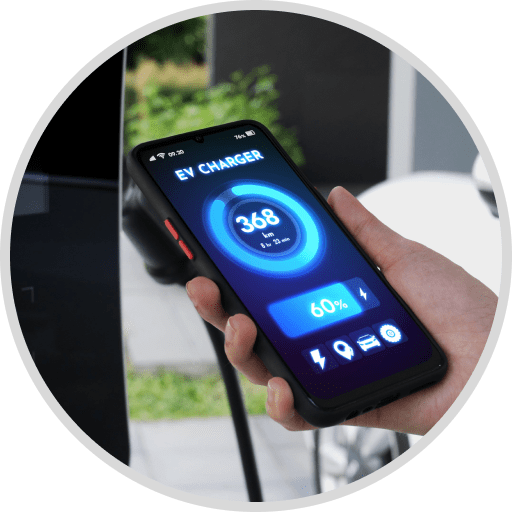
2. Enhance Your Company Brand
As your business is added to EV charging apps, you can enhance your brand visibility to tech-savvy consumers and early adopters. This can also boost your company’s image through word-of-mouth marketing and referrals. By publicly advocating for sustainable transportation, businesses can illustrate their commitment to the environment while showing they care about consumer needs.

3. Create Additional Revenue Streams
Many EV owners are willing to pay for on-the-go charging options to minimize travel time. For many, the convenience of quick charging, especially on long trips, is worth the price to alleviate anxiety. In fact, an E-Source survey found that most EV owners were willing to pay up to $3 per hour for public charging — the same respondents who paid 75 cents per hour for Level 2 EV charging at home.*

4. Futureproof Your Business
In America, the federal phase-out of gasoline cars is underway. After setting the target a few years back that half of all new vehicles sold in the U.S. must be electric by 2030, the Biden Administration finalized regulations to curb gas-powered tailpipe emissions in the spring of 2024.* The transition to EVs will soon be a requirement, not a trend. Companies that embrace the change by installing commercial EV charging stations can stay ahead of the curve and invest in the future of their business.

5. Showcase Your Commitment to Sustainability
By offering EV charging services, business owners make it easier for both employees and customers to adopt clean transportation options, helping to reduce overall carbon emissions. Many companies have environmental, social and governance (ESG) goals and set targets for achieving them. EV charging stations can help businesses improve ESG scores and ratings by including this initiative in the corporate sustainability strategy.
Downsides of Commercial EV Charging Stations
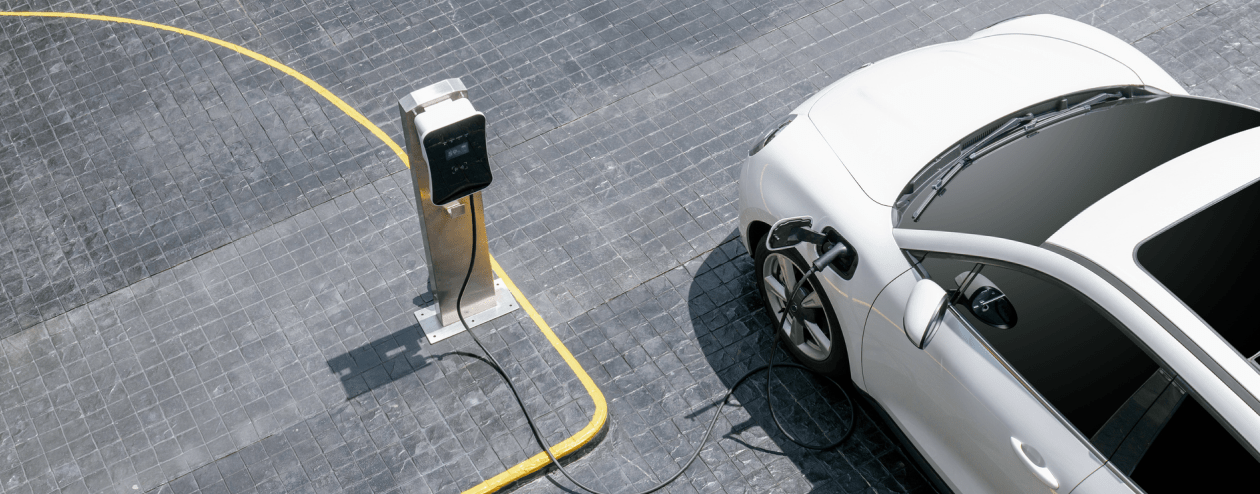
Despite the benefits, EV charging stations may not suit every business. If you’re considering adding this infrastructure, there are a few things you should be aware of.
- Parking availability: Charging stations require dedicated parking spaces, which can reduce parking availability for staff and customers. Adding this type of infrastructure can be a challenge if your parking is already limited.
- Power grid capacity: Adding multiple commercial EV charging stations requires additional power, which may call for upgrades to your electrical infrastructure. Many businesses find that installing solar panels on their facility is a win-win in terms of creating an additional source of power — emission-free power — without causing utility bills to skyrocket.
- Initial investment: The upfront cost of EV chargers for businesses can be high, depending on the charger type. There are base hardware costs, additional software and service costs, and a separate installation fee. When you go through an energy service company like Sunnova, you can finance this offering with a flexible loan, and even bundle it with solar or solar plus energy storage to maximize your return.
- Uncertain profitability: While commercial EV charging stations will attract electrical vehicle owners, their exact usage and your business’s profitability will vary. Your location, the demand in your area, nearby competition and your final pricing structure will impact the return on your investment.
Curious if commercial EV chargers make sense for your business?
Our experts can provide scenarios for different chargers, allowing your team to perform a cost-benefit analysis.
What Kind of Commercial EV Charger Do You Need?
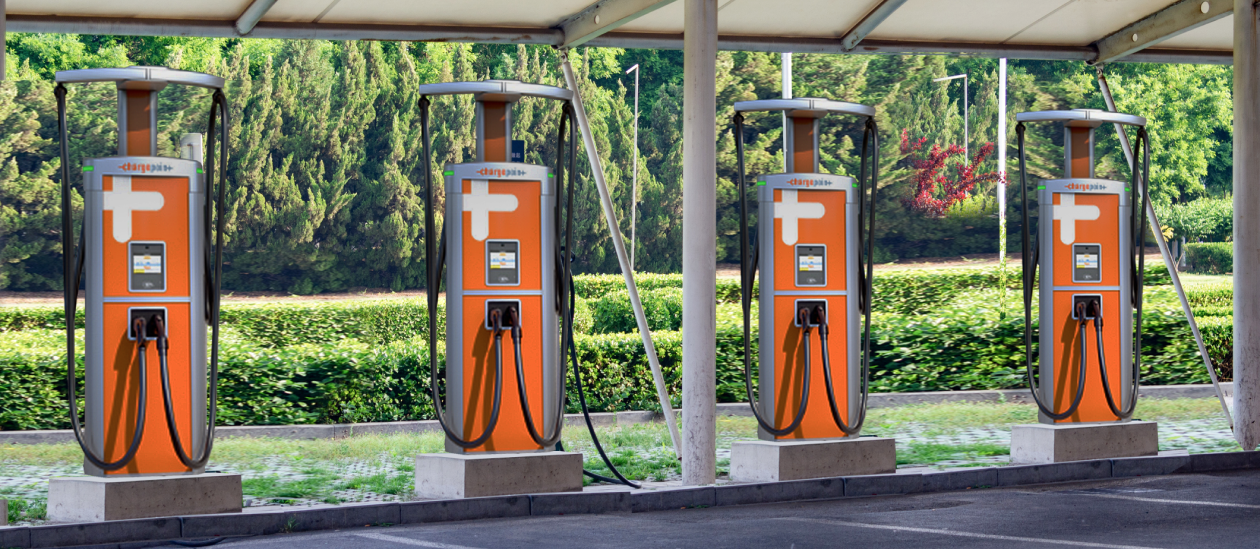
Sunnova now provides financing for the latest EV charging technology through ChargePoint’s suite of products. Whether you’d like to finance a commercial EV charger alone or bundle it with solar panels or a solar and storage system, Sunnova has flexible loan options to meet your needs.
We offer three types of ChargePoint EV chargers: two Level 2 chargers and a Level 3 express. We’ll break each down by business type to help you understand which model may be best for you.
Long-Duration Destinations
Office parks, music venues, and hotels are places where patrons spend a significant amount of time. They’re working, shopping, staying overnight — and have time to charge their EV batteries for six to 12 hours.
Recommended charger: CT-4000
Benefits: With a lower-capacity circuit to power each port, the CT-4000 may enable businesses to reduce or eliminate infrastructure upgrades. This Level 2 charger also features intelligent power management that lets companies increase charging costs during peak demand hours when electricity prices surge. Real-time reporting enables businesses to understand station status, driver revenue, usage and fees, environmental impact and more.
Ideal for: Hotels, stadiums, theme parks, conference centers
Estimated costs: $15,500-$20,000 for hardware and one year of software and services, plus average installation costs.^
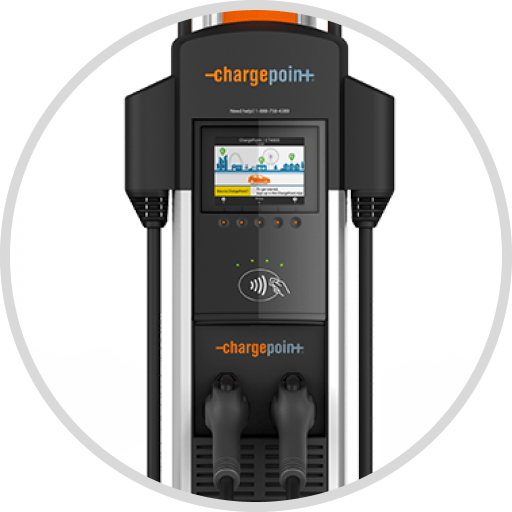
Multi-Family & Destination Stops
Apartment complexes, outlet malls and casinos are all places where patrons spend a few hours, but not necessarily all day. For business owners looking to increase their net operating income and property values, adding EV charging stations at these locations can help.*
Recommended charger: CFP-50
Benefits: This Level 2 charger also takes six to 12 hours to reach a full charge, depending on the vehicle size. Featuring delay-charge scheduling, the CFP-50 allows drivers to wait until peak rates have subsided before charging their EVs. Yet, the versatility lets businesses charge drivers more when electricity demand surges. Like the CT-4000, this model also features a lower-capacity circuit, which may help business owners avoid electrical upgrades.
Ideal for: Condominium complexes, retail shops, wineries
Estimated costs: $10,000-$12,500 for hardware and one year of software and services, plus average installation costs.^

Short-Duration Destinations & On-the-Go Stops
Restaurants and quick stops like grocery stores and truck plazas are places where patrons spend 20 minutes to an hour or two, but not all day. These convenient locations allow business owners to generate revenue by charging drivers a premium. In fact, more than 50% of EV drivers are willing to pay two times more at a commercial EV charging station than they do at home.*
Recommended charger: Express 250
Benefits: A Level 3 fast charger, the Express 250 can add 200 miles of range in just 15 minutes. Its minimal moving parts increase reliability and minimize maintenance, while offering high-efficiency power conversion to reduce electricity costs and wasted energy. Compatible with international electric grid standards and vehicles, the Express 250 provides up to 25% more power than standard 50 kW stations.*
Ideal for: Merchandise retailers, gas stations, quick-serve restaurants
Estimated costs: $58,500-$66,000 for hardware and one year of software and services, plus average installation costs.^
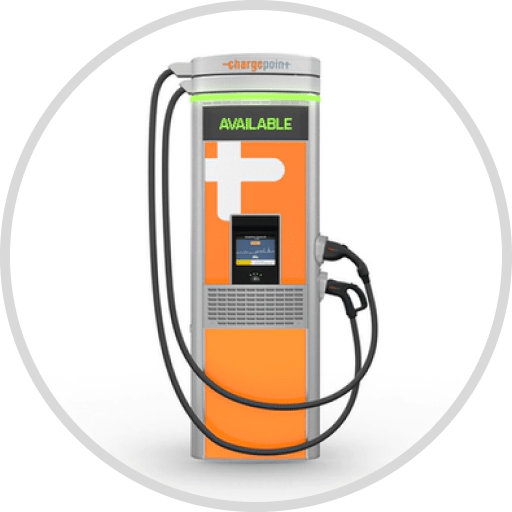
^ Individual costs will vary, depending on the complexity of your project. Cost estimations as of September 2024. Does not constitute an offer.

Sunnova Has You Covered
Whether you’re a business owner who wants to provide tenants with free charging, are looking for an additional revenue stream with fast EV charging or want to attract new customers, commercial EV chargers offer a competitive advantage.
With access to ChargePoint’s product suite, now you can set your business apart as a sustainability leader. From increasing foot traffic to amplifying your brand to creating new revenue streams, commercial EV chargers can take your company to the next level.
Ready to get started?

